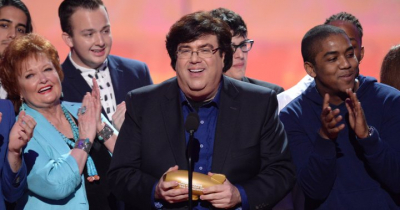Certainly! Here is a Wikipedia-style article about Pauli Murray:
Pauli Murray: A Trailblazing Civil Rights Advocate and Legal Luminary
Anna Pauline "Pauli" Murray (November 20, 1910 – July 1, 1985) was a visionary civil rights activist, lawyer, writer, and Episcopal priest whose tireless efforts transformed the landscape of American law and social justice.
Early Life and Education
Born in Baltimore, Maryland, Pauli Murray navigated a world steeped in racial and gender discrimination. Despite facing immense challenges, Murray exhibited an exceptional intellect and an unwavering commitment to justice from a young age.
Denied admission to the University of North Carolina due to racial segregation, Murray went on to attend Hunter College in New York City, graduating in 1933. Later, she earned a law degree from Howard University, becoming one of the first African American women to achieve this feat.
Pioneering Legal Career
Pauli Murray's legal career was marked by groundbreaking achievements. Her tireless advocacy for civil rights led her to co-found the Congress of Racial Equality (CORE) in the 1940s. Her legal prowess and dedication to equality propelled her into a lifelong battle against racial segregation and discrimination.
In the 1950s, Murray's keen legal mind laid the groundwork for key arguments in cases such as Brown v. Board of Education, which eventually led to the Supreme Court's ruling against school segregation.
Intersectional Activism and Writing
Murray's activism extended beyond racial justice; she was a vocal advocate for gender equality. Her pioneering work highlighted the intersectionality of race and gender discrimination, laying the foundation for future feminist legal theory.
As an acclaimed writer, her works, including "States' Laws on Race and Color," provided comprehensive analysis and critique of discriminatory legislation.
Clergy and Social Justice
Later in life, Pauli Murray found spiritual fulfillment in the ministry and became the first African American woman ordained as an Episcopal priest in 1977. Her commitment to justice persisted, and she continued advocating for marginalized communities, intertwining her faith with social activism.
Legacy and Recognition
Pauli Murray's impact on civil rights and gender equality remains unparalleled. Her writings, legal strategies, and activism served as a catalyst for significant legal and societal changes, laying the groundwork for future advancements in equality.
In recognition of her immense contributions, Pauli Murray's legacy endures. In 2021, she was posthumously honored as an Episcopal saint, a testament to her unwavering dedication to justice and her profound impact on American society.
Remembering a Champion of Justice
Pauli Murray's life stands as a testament to courage, resilience, and unwavering dedication to civil rights and social justice. Her multifaceted contributions continue to inspire generations, reminding us of the transformative power of activism and the enduring quest for equality.
Pauli Murray stands as a towering figure in the realms of civil rights, law, and advocacy. Their groundbreaking work, spanning legal challenges against racial and gender discrimination, laid the foundation for pivotal advancements in equality. Murray's unwavering commitment to justice, evident from their pioneering legal strategies to their intersectional activism, continues to inspire generations. Their legacy endures as a testament to the transformative power of advocacy, resilience, and the unyielding pursuit of a more just and equitable society.
Pauli Murray has been featured in various books, documentaries, and websites highlighting their influential role in civil rights and law. Some of the notable references include:
Books:
• "Jane Crow: The Life of Pauli Murray" by Rosalind Rosenberg — This biography delves into Murray's life and their significant contributions to civil rights and law.
• "Pauli Murray: Selected Sermons and Writings" edited by Anthony Pinn and Mary Farrell Bednarowski — A collection of Murray's writings and sermons reflecting their activism and spiritual journey.
Documentaries:
• "My Name is Pauli Murray" (2021) — A documentary film exploring Murray's life, activism, and impact on civil rights and gender equality.
Websites:
• The Pauli Murray Center for History and Social Justice — A website dedicated to preserving and promoting Murray's legacy, featuring their contributions and achievements in civil rights and law.
These sources provide insights into Pauli Murray's remarkable life, their advocacy for civil rights and gender equality, and their enduring legacy in shaping American history.





